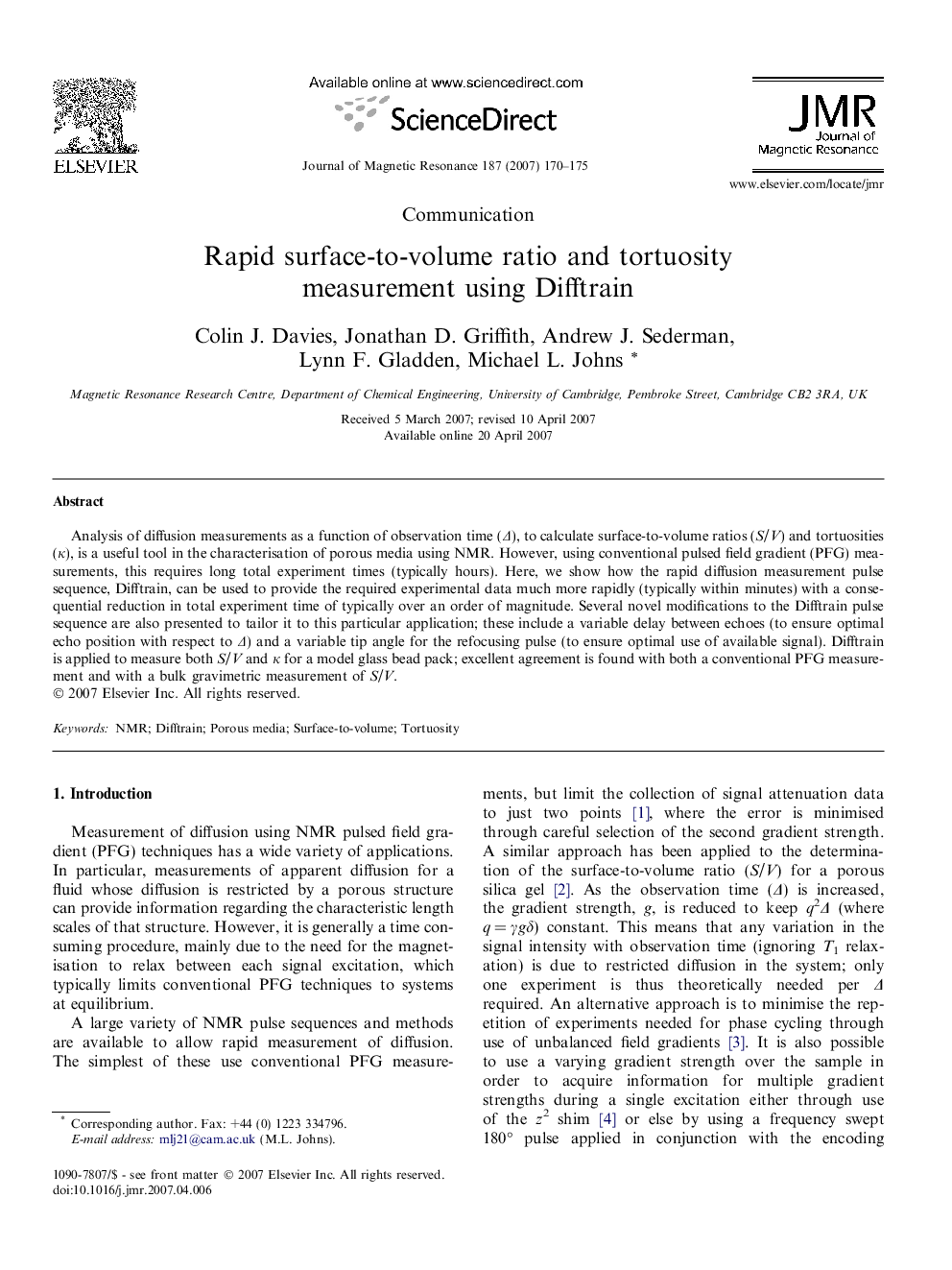| Article ID | Journal | Published Year | Pages | File Type |
|---|---|---|---|---|
| 5407369 | Journal of Magnetic Resonance | 2007 | 6 Pages |
Abstract
Analysis of diffusion measurements as a function of observation time (Î), to calculate surface-to-volume ratios (S/V) and tortuosities (κ), is a useful tool in the characterisation of porous media using NMR. However, using conventional pulsed field gradient (PFG) measurements, this requires long total experiment times (typically hours). Here, we show how the rapid diffusion measurement pulse sequence, Difftrain, can be used to provide the required experimental data much more rapidly (typically within minutes) with a consequential reduction in total experiment time of typically over an order of magnitude. Several novel modifications to the Difftrain pulse sequence are also presented to tailor it to this particular application; these include a variable delay between echoes (to ensure optimal echo position with respect to Î) and a variable tip angle for the refocusing pulse (to ensure optimal use of available signal). Difftrain is applied to measure both S/V and κ for a model glass bead pack; excellent agreement is found with both a conventional PFG measurement and with a bulk gravimetric measurement of S/V.
Keywords
Related Topics
Physical Sciences and Engineering
Chemistry
Physical and Theoretical Chemistry
Authors
Colin J. Davies, Jonathan D. Griffith, Andrew J. Sederman, Lynn F. Gladden, Michael L. Johns,
